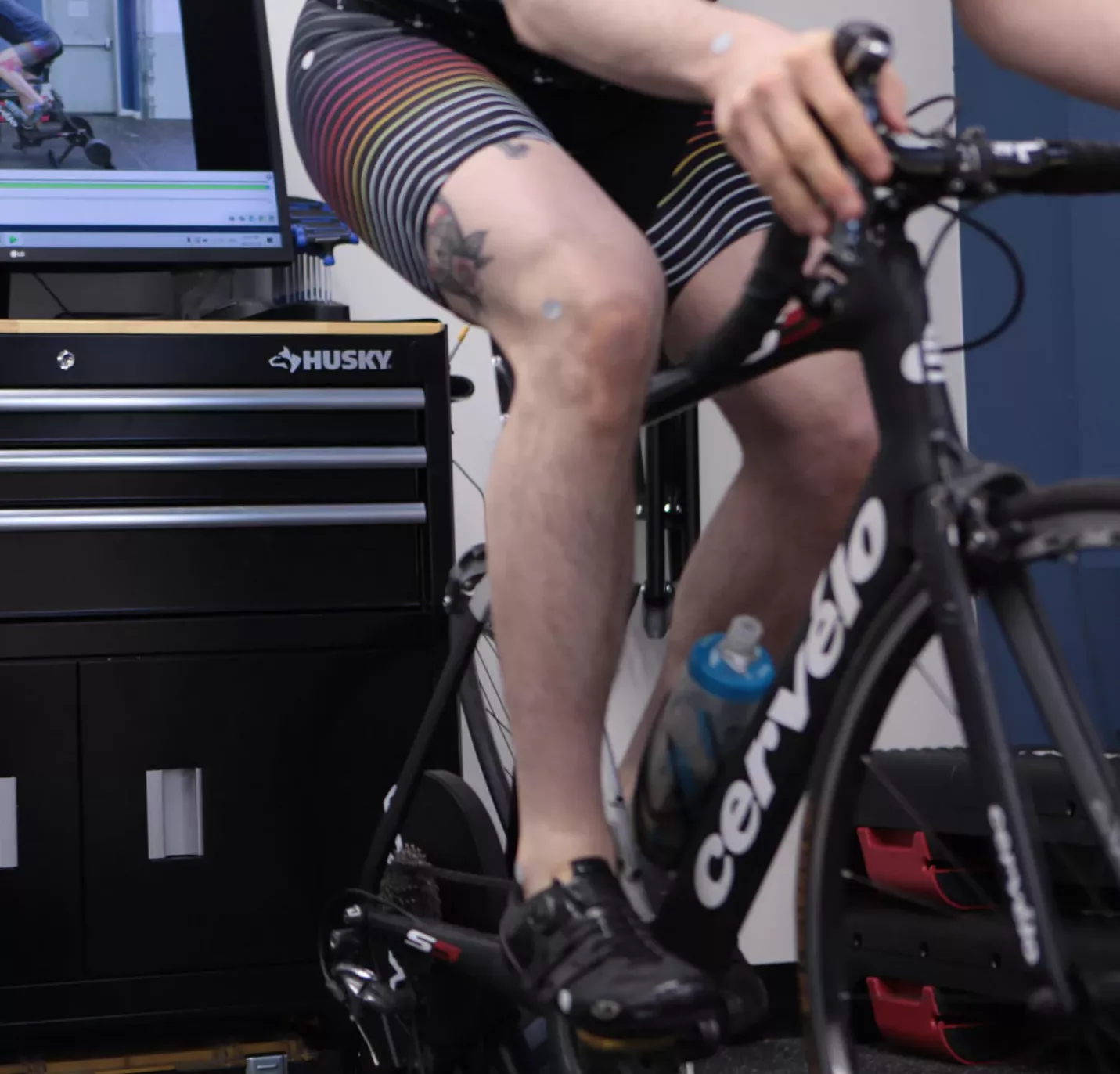
Optimize Your Ride: The Power of Physiotherapy-Led Bike Fits
Cycling is an incredible way to maintain an active and healthy lifestyle. However, if your bike isn’t properly fitted to your body, it can lead to discomfort and even injuries, which can truly be a pain in the neck—both literally and figuratively!
Picture this: You’re out on the open road, with the wind in your face, exerting all your energy into each pedal stroke. But instead of experiencing pure cycling bliss, you’re plagued by nagging knee pain, bothersome lower backaches, tingling sensations in your hands and feet, and even irritating neck soreness. What’s the culprit? Well, my fellow riders, it’s likely that your bike fit is out of alignment.
Let’s dive deeper into some of the most common problems associated with an improper bike fit. Each of these issues can significantly impact your cycling experience:
Knee pain:
When your bike’s saddle height or cleat position isn’t adjusted correctly, it can lead to knee pain. Misalignment of the knee joint causes strain and discomfort, hindering your enjoyment of the ride.
Lower back pain:
An improper bike fit can also result in lower back pain. The unnatural position of your spine while riding places undue pressure on your lower back, causing discomfort and affecting your ability to spend more time in the saddle.
Numbness or tingling in hands or feet:
Incorrect positioning of the handlebars or saddle can exert pressure on nerves and blood vessels, resulting in numbness or tingling sensations in your hands or feet. These unwelcome sensations can seriously dampen your cycling experience.
Neck pain:
A bike fit that doesn’t take into account handlebar placement in relation to your body can cause neck pain. When the handlebars are positioned too far away or too close, it strains your neck muscles, leading to discomfort during and after your rides.
Fatigue:
When your body isn’t properly supported by your bike, it can quickly lead to fatigue and a loss of power. Inadequate bike fit forces you to expend extra energy to maintain your position, leading to premature exhaustion and diminished performance.
But fret not, my fellow cycling enthusiasts, because there’s a remedy—a physiotherapy-led bike fit. Physiotherapists possess an in-depth understanding of the human body, enabling them to assess and diagnose any issues you may encounter while cycling. They’ll ensure that you ride with optimal comfort, safety, and performance.
However, not all bike fits are created equal. Enter the clinical bike fit—a comprehensive approach that harmonizes your body and bike, resulting in the perfect cycling symphony.
A clinical bike fit takes into account your unique characteristics, such as arm and leg length, torso length, flexibility, cycling experience, and previous injuries. This personalized approach minimizes pain, reduces the risk of injury, and enhances your overall comfort, efficiency, and performance on the bike.
During a clinical bike fit session, a skilled physiotherapist will thoroughly evaluate your body’s movement and function. They’ll assess critical areas for cycling performance, including hip, knee, and ankle flexibility, as well as core strength. Based on their assessment, they’ll make a series of adjustments to your bike, optimizing key elements such as saddle height, handlebar placement, and cleat position.
To provide an even more comprehensive analysis, we utilize cutting-edge 3D motion capture technology. This advanced system allows us to assess your pedaling mechanics under different wattage and cadences, giving us valuable insights into your riding dynamics. By analyzing your body positions throughout the pedal stroke and observing the effects of bike adjustments, we can fine-tune your setup to perfection.
At Connect, we take immense pride in offering clinical bike fits led by experienced physiotherapists who leverage the power of 3D motion capture technology. Our goal is to provide you with the most precise and effective bike fit based on your anatomy, ensuring optimal comfort, efficiency, and performance.
In addition to addressing the issues mentioned above, our clinical bike fits go the extra mile. We provide guidance on proper posture during cycling and equip you with targeted exercises to address any specific concerns identified during the assessment. Investing in a bike fit with a physiotherapist is an investment in your overall health and well-being.
When your bike is properly fitted to your body, a world of difference unfolds. You’ll experience unparalleled comfort, heightened efficiency, and an overall improvement in your cycling performance, whether you’re a seasoned competitor or just embarking on your cycling journey.
So, my fellow cycling enthusiasts, if you’re yearning to elevate your cycling experience, look no further than a physiotherapy-led bike fit. It’s time to embrace the road ahead, armed with the perfect harmony between you and your beloved bike. Let’s ride towards a new chapter of cycling excellence!

